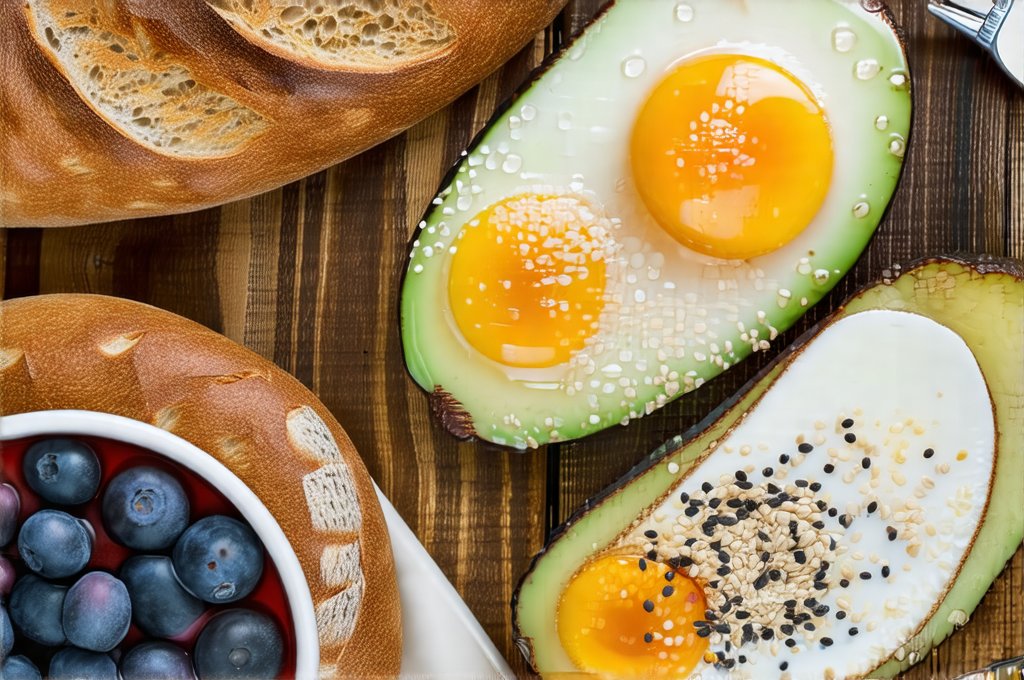Navigating breakfast with Irritable Bowel Syndrome (IBS) can feel like an impossible challenge. Many traditional breakfast foods – wheat toast, sugary cereals, even fruit – are notorious IBS triggers, leaving individuals feeling bloated, uncomfortable, and anxious about starting their day. The good news is that a satisfying, nourishing, and symptom-free breakfast isn’t out of reach. It simply requires understanding how fiber interacts with IBS, choosing the right types of fiber, and adopting mindful eating practices. This article will explore high-fiber breakfast options specifically designed to minimize discomfort and maximize digestive well-being for those living with IBS.
IBS is a complex condition, and what triggers one person may not affect another. However, many individuals find that soluble fiber tends to be better tolerated than insoluble fiber. Soluble fiber dissolves in water, forming a gel-like substance which can help regulate bowel movements and reduce sensitivity. Insoluble fiber adds bulk to the stool, which can sometimes exacerbate IBS symptoms like bloating and cramping. The key is finding a balance and incorporating fiber gradually into your diet. This isn’t about eliminating fiber; it’s about strategically choosing and preparing foods that support digestive health rather than disrupt it. If you struggle with digestion in the morning, consider exploring morning beverages that are gentle on your stomach.
Understanding Fiber & IBS: A Balancing Act
Fiber’s reputation as a digestive aid often overshadows its potential to cause problems for individuals with IBS. The issue isn’t necessarily fiber itself, but the type and amount. As mentioned earlier, soluble fiber is generally more gentle on the gut than insoluble fiber. Foods rich in soluble fiber include oats, bananas (slightly green are better tolerated), cooked carrots, and psyllium husk (used cautiously). Insoluble fiber, found in whole wheat bread, bran cereals, and many raw vegetables, can accelerate digestion and potentially lead to gas, bloating, and diarrhea or constipation depending on the IBS subtype. – It’s important to remember that everyone is different, and what works for one person may not work for another. – Keeping a food diary can be invaluable in identifying your personal triggers. – Introducing fiber slowly allows your gut microbiome to adapt and minimizes digestive upset. A great way to incorporate more manageable fiber intake into your diet are simple snacks that won’t cause flare ups.
The Low FODMAP diet has become increasingly popular among IBS sufferers, and rightly so. FODMAPs (Fermentable Oligosaccharides, Disaccharides, Monosaccharides And Polyols) are short-chain carbohydrates that can be poorly absorbed in the small intestine, leading to fermentation by gut bacteria and subsequent symptoms. Many high-fiber foods also contain FODMAPs, making careful selection crucial. For example, apples are a good source of fiber but high in fructose (a FODMAP). Similarly, beans are packed with fiber but also contain galactans (another FODMAP). Learning which foods are low FODMAP and high in soluble fiber is the sweet spot for a comfortable and nutritious breakfast.
Building Your IBS-Friendly Breakfast Plate
Creating an IBS-friendly breakfast isn’t about restrictive dieting; it’s about mindful choices. Here’s how to build a plate that supports digestive health:
- Choose your base: Opt for gluten-free oats, quinoa flakes, or rice porridge as these are generally well-tolerated and offer soluble fiber. Avoid wheat-based cereals and breads initially.
- Add a protein source: Protein helps stabilize blood sugar levels and provides sustained energy. Good options include eggs (if tolerated), Greek yogurt (lactose-free if needed), or a small amount of nut butter (check for added FODMAPs).
- Incorporate low-FODMAP fruits: Bananas (slightly green are preferable), blueberries, strawberries, and oranges can add flavor and nutrients without triggering symptoms. Avoid apples, pears, peaches, and mangoes in large quantities.
- Healthy fats: A small amount of healthy fat, such as flaxseeds or chia seeds, can aid digestion and provide essential fatty acids.
- Spice it up (carefully): Ginger and turmeric possess anti-inflammatory properties that may benefit IBS symptoms. Consider planning fiber-rich dinners to complement your breakfast choices for a full day of digestive support.
Breakfast Recipes to Try
Here are a few breakfast ideas tailored for IBS sufferers:
- Oatmeal with Banana & Walnuts: Gluten-free oats cooked with water or lactose-free milk, topped with sliced banana (slightly green), a sprinkle of walnuts, and a dash of cinnamon.
- Rice Porridge with Berries & Almond Butter: Rice porridge made with coconut milk, garnished with blueberries, strawberries, and a tablespoon of almond butter.
- Scrambled Eggs with Spinach & Gluten-Free Toast: Scrambled eggs cooked with spinach (in moderation), served alongside a slice of gluten-free toast with avocado.
Navigating Common Breakfast Triggers
Many seemingly innocuous breakfast foods can wreak havoc on sensitive digestive systems. Coffee, for example, is a common trigger due to its stimulating effect on the gut and potential to increase acidity. Similarly, dairy products can cause issues for those with lactose intolerance or sensitivity. – Consider switching to decaf coffee or herbal tea. – Experiment with lactose-free alternatives like almond milk, coconut yogurt, or oat milk. – Be mindful of artificial sweeteners, as some (like sorbitol and mannitol) are FODMAPs and can exacerbate symptoms. If you’re traveling and need calm solutions, check out foods that calm an upset stomach on the go! To avoid triggers altogether, try these breakfast ideas. You could also look into these easy breakfasts to help manage your symptoms.
Finally, don’t underestimate the power of mindful eating. Eating quickly without chewing properly can put a strain on your digestive system. Take your time, savor each bite, and pay attention to how your body responds. This simple practice can make a significant difference in managing IBS symptoms and enjoying breakfast – and life – to the fullest. Remember that consistency and careful observation are key to discovering what works best for you.


















